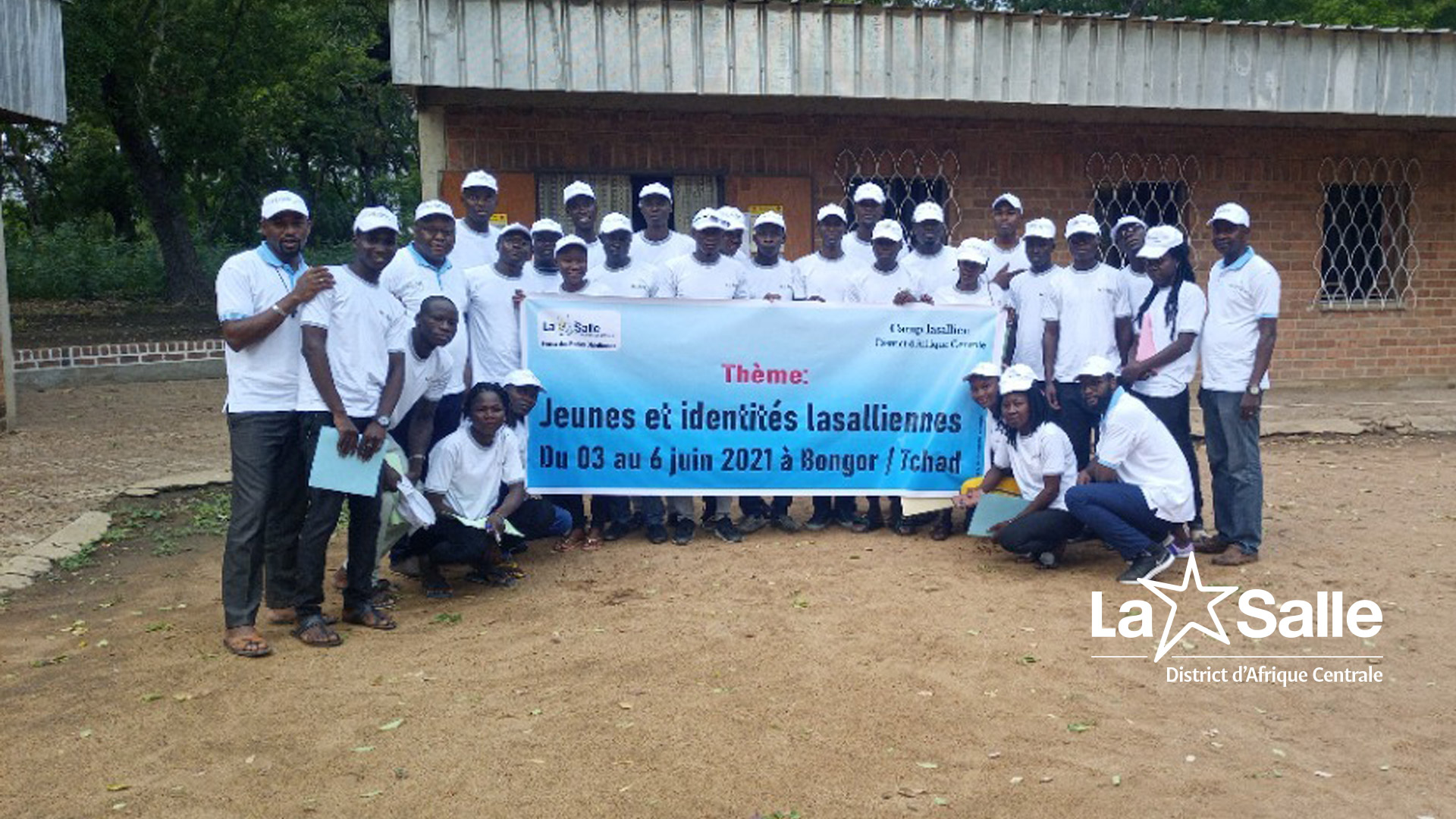Brother Guy-Blaise KAMENI, Camp Manager
On the initiative of the two Brothers’ communities in Chad, a first camp for young Lasallians was organised in Bongor, a small town situated halfway between Ndjamena, the capital of the country, and Kélo, another town where the Brothers run a secondary school for general and technical education.
This camp took place from 3 to 6 June 2021 and brought together 26 young Lasallians from Ndjamena and Kélo, and 4 Brothers in charge.
The general theme of the camp was “Young people and Lasallian identity” with the main objective of encouraging these young people to become involved in the great Lasallian family of the District.
Indeed, it all started with the arrival of the participants on the site in the afternoon of 3 June, followed by the installation and the constitution of the camp animation teams. The same day in the evening, at 6pm, all the young people gathered together in the chapel to pray, meditate and give thanks to God for His marvels in the life of each one. After the prayer, a welcome dinner for all followed at 7pm. At 8.30 pm, a meeting was held to receive the instructions that would accompany the activities of this camp, as well as the reading of the programmes and the presentation of the camp team.
The other days were devoted to the presentation of three sub-themes which would be the focus of the young Lasallians’ stay in Bongor, namely:
- John Baptist de La Salle and the Brothers of the Christian Schools today
- Lasallian identity
- Young people in search of their identity.
These sub-themes were developed in turn by the Brothers in charge and allowed the young people to better understand and define their identity while remaining attentive to God’s call. After each presentation, sufficient time was given to the young people to allow them to discuss in small groups one or other subject that they wished to study in greater depth.
Apart from sub-themes, several other activities were organised, such as physical exercises and cultural evening, therapeutic walks, relaxation, football, cultural performances, in order to maintain good health throughout the camp. These activities also contributed to strengthening the mutual knowledge of the young people among themselves and with the Brothers in charge. In addition, there were times for community prayer and individual meditation, reflection, learning religious songs, and conviviality over meals and soft drinks.
One of the highlights is especially the morning and evening prayers during which the young Lasallians entrust themselves to the Lord through the spiritual exercises in the Centre’s chapel, an ideal place for silent meditation. Christians and non-Christians alike were involved in these exercises, a discovery for most.
The testimonies collected from the young Lasallians suggest that they are very satisfied with the course, the content of the themes dealt with and the general organisation of the camp, especially as they had been waiting for this camp for a long time after multiple postponements because of Covid’19. The 18 young people who came from N’Djamena and the 8 from Kélo actively participated in the various activities throughout the camp and are keen to have a second edition.
Before leaving Bongor, on Sunday 6th June, the young Lasallians took part in the celebration of the Eucharist in the parish of Saint Joseph of Bongor where the Church was celebrating the Blessed Sacrament. On the occasion of this Mass, the Brother in charge of the camp had the opportunity to address the faithful by presenting to them Lasallian vocations in general and that of the Brother of the Christian Schools in particular.
To conclude, it should be noted that the day before their departure for the camp, the young Lasallians of N’Djamena went, with hands full of basic necessities (rice, pasta, milk, oil, soap…) to visit the orphan children, residents of the ORPHELINAT DIEU BENI situated in Gassi, one of the remote districts of the town. This was an unexpected gesture that was very much appreciated by the promoter of this social structure, which takes in some 70 motherless children aged 0 to 12 years.



